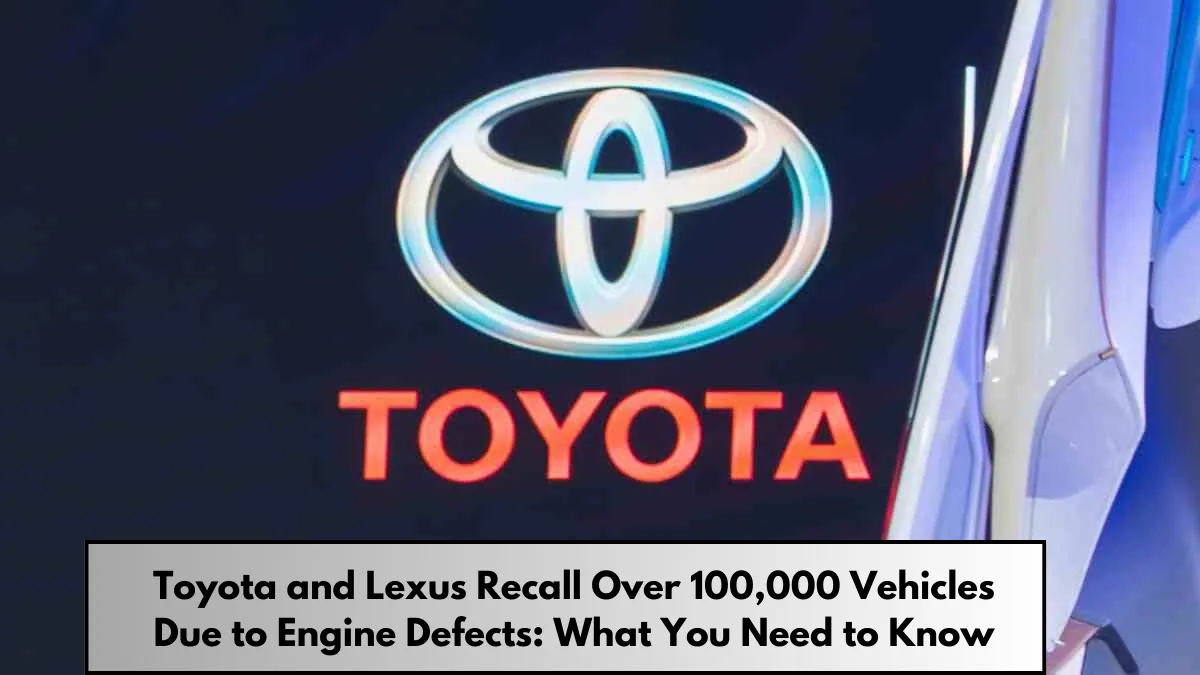Toyota has recently initiated one of its largest and most complex vehicle recalls, involving more than 100,000 cars from its Toyota and Lexus brands. This recall stems from a significant engine issue found in the V-6 twin-turbocharged engines, particularly affecting the Toyota Tundra pickup trucks and Lexus LX SUVs from the 2022 and 2023 model years. This article explores the causes, scope, and implications of this massive recall, as well as Toyota’s proactive response.
Why Are Toyota and Lexus Cars Being Recalled?
This Article Includes
- 1 Why Are Toyota and Lexus Cars Being Recalled?
- 2 Vehicles Affected by the Recall
- 3 How the Engine Defect Was Discovered
- 4 Toyota’s Drastic Solution: Complete Engine Replacement
- 5 Financial and Production Impact of the Recall
- 6 Toyota’s Commitment to Customer Safety
- 7 Conclusion: Toyota Takes Bold Steps to Preserve Trust
The primary issue behind the recall is a defect in the V-6 twin-turbocharged engines, where machining debris left inside the engine during production can cause serious mechanical problems. These include engine knocking, rough performance, difficulty starting, and in the most severe cases, sudden engine failure while driving. This increases the risk of accidents, making the defect a critical safety concern.
Toyota first informed the National Highway Traffic Safety Administration (NHTSA) about this defect in May 2024, but at that time, the company estimated that only a small percentage of the 102,092 affected vehicles might exhibit the defect. However, due to the uncertainty about the exact number of vehicles impacted, Toyota opted for a comprehensive engine replacement for all potentially affected cars.
Vehicles Affected by the Recall
The recall involves both the Toyota Tundra and Lexus LX models produced between the following dates:
- Toyota Tundra: November 2021 – February 2023
- Lexus LX: July 2021 – November 2022
Notably, only the non-hybrid versions of the 3.4-liter V-6 twin-turbocharged engines, designated as V35A, are included in the recall. Hybrid Tundra models are excluded since their electric motors provide a safeguard in case of engine failure.
How the Engine Defect Was Discovered
The issue first came to light in March 2022 when a customer reported a sudden engine stall. After investigating, Toyota found that the engine’s main bearings had seized, which pointed to the presence of machining debris. As more reports emerged, Toyota accumulated 166 technical reports and 824 warranty claims related to the engine problem by 2023. This mounting evidence prompted the company to take decisive action with a voluntary recall.
Toyota’s Drastic Solution: Complete Engine Replacement
In a bold and proactive move, Toyota decided to replace the engines of all 100,000+ vehicles, even though only a small percentage of them may be affected. This solution specifically targets non-hybrid models with the V-6 twin-turbocharged engines. The scale of this engine replacement is unprecedented and involves swapping out engines in approximately 98,600 Toyota Tundra trucks and 3,500 Lexus LX SUVs.
Toyota’s decision to go beyond a simple repair underscores its commitment to customer safety and satisfaction, ensuring that every potentially faulty engine is addressed.
Financial and Production Impact of the Recall
Replacing over 100,000 engines comes at a significant cost, not only for the parts themselves but also for the labor involved in removing and installing the engines. This massive recall is likely to have a financial impact on Toyota, especially as the company has to allocate manufacturing capacity to produce the replacement engines. Additionally, the recall could affect the production schedule for new vehicles as resources are redirected to address the engine replacement.
Toyota’s Commitment to Customer Safety
Despite the financial and logistical challenges, Toyota’s response to this issue has been widely praised for its thoroughness. By opting for full engine replacements rather than minor fixes, the company has demonstrated its dedication to long-term customer trust and safety. This proactive approach not only ensures the well-being of its customers but also reinforces Toyota’s reputation for quality and reliability.
Toyota plans to notify affected vehicle owners before the end of the month, providing them with instructions on the next steps to take. Vehicle owners are advised to stay vigilant and respond promptly to any updates from Toyota or NHTSA regarding this recall.
Conclusion: Toyota Takes Bold Steps to Preserve Trust
Toyota’s decision to replace the engines in over 100,000 vehicles—even when only a small number may be at risk—sends a powerful message about the company’s commitment to safety and reliability. By tackling the issue head-on and implementing a comprehensive solution, Toyota is reinforcing its reputation as a leader in the automotive industry. Though the recall may come at a high cost, the company’s focus on ensuring customer satisfaction and safety will likely pay dividends in maintaining long-term brand loyalty.
If you own a Toyota Tundra or Lexus LX from the affected production years, it’s crucial to stay informed and follow Toyota’s instructions regarding the recall. This proactive measure is a testament to Toyota’s unwavering dedication to resolving critical issues and ensuring its vehicles meet the highest safety standards.







Leave a Reply